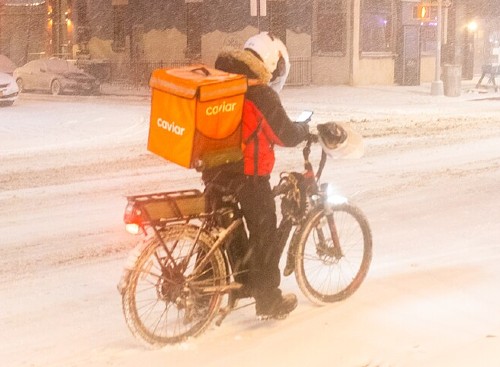
On February 20, the US Supreme Court ruled part of US president Donald Trump’s crazy-quilt tariff scheme illegal in its particulars. Specifically, SCOTUS noticed that the International Emergency Economic Powers Act does not provide the authorization Trump claims for imposing tariffs as he pleases, in the amounts he pleases, on products from whatever country he pleases, when doing so pleases him.
The court did not, however, order refunds of the stolen money to the American importers that money was stolen from (and who passed the costs of the theft on to American consumers in the form of higher prices). It remanded the case back to lower courts so far as relief and restitution are concerned.
Tariff victims had already begun preemptively suing for the restitution they’re owed even before the Supreme Court ruling, and since that ruling other companies, including FedEx, have also initiated court proceedings.
The victims shouldn’t HAVE to sue. President Trump SHOULD just order the US Treasury to refund the money immediately. That would be the honest thing to do.
Naturally, Trump disagrees. Instead of doing the right and honest thing, he’s throwing a tantrum over being held to the law and pursuing a new, just as legally suspect, tariff powers claim so that he can keep stealing money from American businesses and consumers … at least until the courts nix that scam too.
Here’s the thing, though: Refunding the money wouldn’t just be honest policy, it would be smart politics.
At the moment, the coming midterm elections look like an impending bloodbath for the Republican Party. The Democrats seem to be sitting pretty in their quest to become the majority party in the US House, and to have a decent shot at taking the Senate as well. Trump has already announced his fear of a third impeachment when … if … that happens.
Can he turn things around? It may not seem likely, but eight months is a long time in politics … and eight months of economic recovery would certainly help his party, and him, out.
Step one: Cut those refund checks and get that money back into the hands of the companies that directly paid the tariffs (sadly, in our partially cash-based economy, it just isn’t feasible to identify and reimburse individual consumers).
Step two: Watch those companies use the pseudo-windfall to get competitive again with lower prices and capital investments toward more, and more efficient, production. More jobs, more sales, more economic activity.
Step three: Republican candidates take credit for the improving situation, while hoping everyone forgets that what we’re recovering FROM is a Republican president’s economic idiocy and policy lawlessness.
Voters do tend to forget, and those who don’t forget might be inclined to forgive — if their wallets start getting fatter instead of thinner.
Six months of good economic news could make a big difference at the polls.
Or Trump can keep (family-friendly version) Fooling Around and Finding Out. Which, with this as with many other things, seems to be his habitual inclination.
I guess we’ll see.
Thomas L. Knapp (X: @thomaslknapp | Bluesky: @knappster.bsky.social | Mastodon: @knappster) is director and senior news analyst at the William Lloyd Garrison Center for Libertarian Advocacy Journalism (thegarrisoncenter.org). He lives and works in north central Florida.
PUBLICATION/CITATION HISTORY


